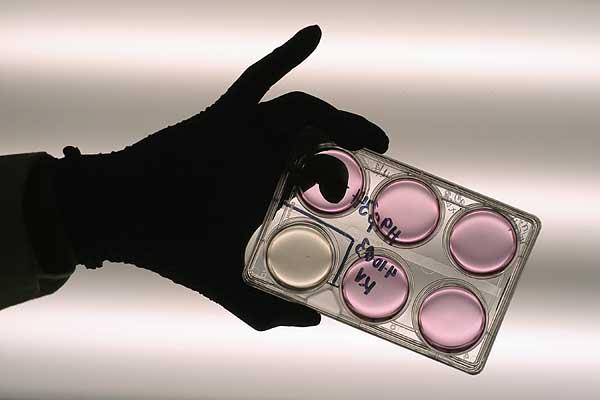Assembly Bill 305 isn’t recognizable by name to most, but the Planned Parenthood video controversy that influenced it is.
If passed, the bill puts a ban on the sale and use of aborted fetal tissue, even for research, which to University of Wisconsin researchers means pivotal studies using aborted fetal tissue could come to an abrupt end after 2015.
Legislators propose bill to ban research use of aborted fetal tissue
For anyone uneducated about scientists’ achievements using stem cell lines, consider: if stem cell research had been banned years ago, there would be no vaccine to protect against chicken pox, rubella, shingles and other diseases.
Looking to the future, researchers, many of whose labs are located on the UW campus, would have to part with the possibility of curing Parkinson’s, spinal cord injuries, diabetes, Alzheimer’s, Lou Gehrig’s and countless other conditions.
The sale of aborted fetal tissue is illegal, yet Wisconsin Rep. Andre Jacque, R-Green Bay, believes it to be inadequate.
I agree with most academics that banning the use of fetal tissue for stem cell research is a ridiculous proposal.
Of course, I understand the ethical opposition to it as well.
At this time, stem cell research can only easily continue if abortion is legal, essentially allowing the death of human fetuses to be used for gain.
I myself don’t believe abortion to be completely ethical, and support its legality only in interest of protecting the health of mothers.
Better regulation, not illegalization
But if abortions are legal, I see no reason why death can’t beget life through the dedicated work of committed stem cell researchers.
Furthermore, isn’t it immoral to sit back while children suffer from diseases like polio, potentially leaving them paralyzed and confined to a wheelchair for the rest of their lives?
Apparently Jacque has caved to this reasoning or (more likely) realized the bill is unlikely to pass as is, since he has altered the language of the bill to allow for the use of existing stem cell lines, which means fetuses aborted before Jan. 1, 2015 could be used in research studies.
I initially scoffed at the bill, like others, thinking of how uneducated Jacque must be to actually outlaw stem cell use in Wisconsin. On further reflection, however, I applaud him for bringing attention to an embedded issue in this debate.
The claims may not be true, but I believe exploitation of fetal tissue as a commodity still exists.
Like Jacque, I believe tougher measures must be taken to ensure the proper, legal use of fetal tissue despite the fact that laws are already in place.
I agree with the representative that these measures may be inadequate. In short, Jacque has provoked a conversation, at least a state-wide one, about the ethics and values of our society and why we need to pay attention to where the moral compass points.
It’s a morality issue
Indulge me as I segue into a discussion on morality for a second.
I don’t think anyone, even the most die-hard pro-choice supporters, would deny that human life is a precious entity and should be treated with utmost respect. Therefore, abortion must always be taken seriously.
Our country is on a path to treating human life with less respect than it has in the past. I won’t sugarcoat it: I am afraid for a future where we become complacent with killing human fetuses and using their tissue for society’s benefit.
It cannot be denied that aborted fetal tissue has become a necessary element in research and it’s alarming to think of it in terms of a supply and demand chain.
Jacque’s action on this issue represents the necessary voice of opposition that keeps our values in check.
As long as there are leaders in this country that spur serious thought and reconsideration on these controversial topics where there may not be a right course of action, there is the hope that our society will continue assigning human life the sanctity it has always deserved.
Megan Stefkovich ([email protected]) is a sophmore majoring in biology.














